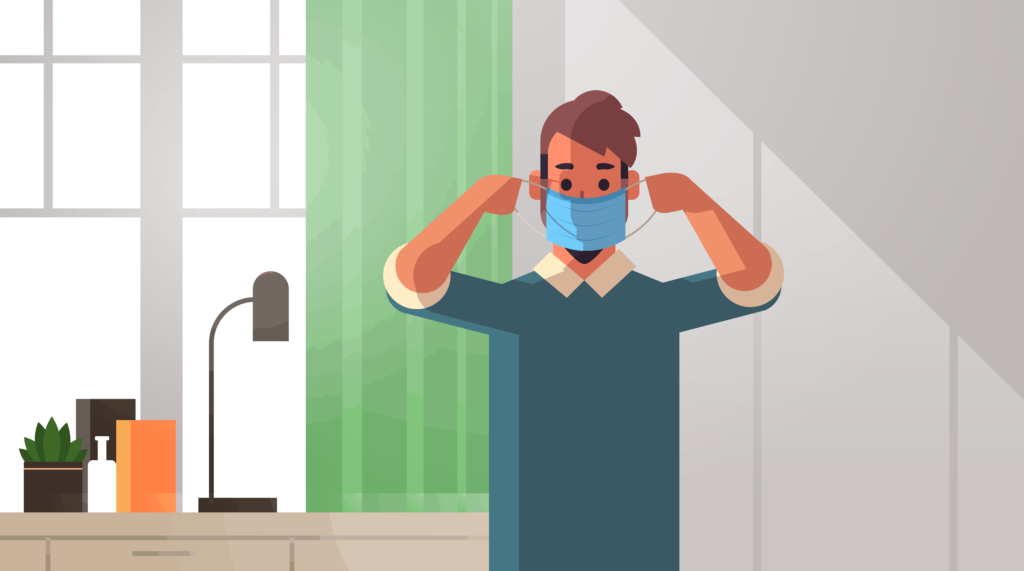Here’s How to Stay Healthy
Although dramatic headlines and lead stories on television focus on overwhelmed hospitals, emergency rooms, and morgues, here’s a fact: the great majority of Covid-19 cases are mild to moderate, and most people will recover without medical assistance… at home.
Here’s another fact: the disease is most commonly transmitted at home, between family members or housemates. So, having a sick person in the house makes it all the more important that strict guidelines should be followed to protect others from being infected.
Staying Healthy Tips
Here are some procedures that will help you stay healthy. Heed them.
- Isolate the sick person to the extent possible given the layout of your home. Of course, a separate room (with a door that can be closed) is ideal. At minimum, a separate area should be designated and restricted to the sick person. Bear in mind that items in the sick person’s area can be contaminated.
- Let in some air. An open window or air conditioner can help disperse airborne germs.
- Protect vulnerable people. If your household includes someone with a compromised immune system or a chronic illness, keeping him/her safe should be a top priority.
- Quarantine yourself. Whether or not you have symptoms, your exposure means that you could transmit the virus. Stay at home and have groceries and other necessities delivered or dropped off by family or friends.
- Disinfect surfaces, plates and utensils. Put another way: clean, clean, clean! Bathrooms and other common areas should be wiped down with disinfectant, dishes washed in hot soapy water or in the dishwasher. The sick person’s laundry should be washed separately. And, of course, wash your hands frequently for at least 20 seconds!
- Prepare food yourself. Even if the sick person is feeling better, they shouldn’t use the kitchen or other common areas.
- Minimize direct interaction with the sick person. Children and pets should be kept out of the area. No one should spend time there unless absolutely necessary.
- Stay connected and supportive! Even as you are doing everything possible to avoid infection, both you and the sick person will do better if you keep in touch remotely. Let them know they’re not alone by phoning, texting, video chatting, or whatever seems easiest and most fun for all concerned.
- Finally, don’t rush to get back to “normal” life. If you or others in the household have been in close contact with someone who’s ill, you should stay in quarantine for fourteen days from the last contact. And during that time be sure to watch for any symptoms, which can include fever, cough, and shortness of breath.
You can find more details and/or further explanation on these suggestions at the following links below.
Sources:
https://www.onemedical.com/blog/live-well/living-someone-who-has-covid-19


